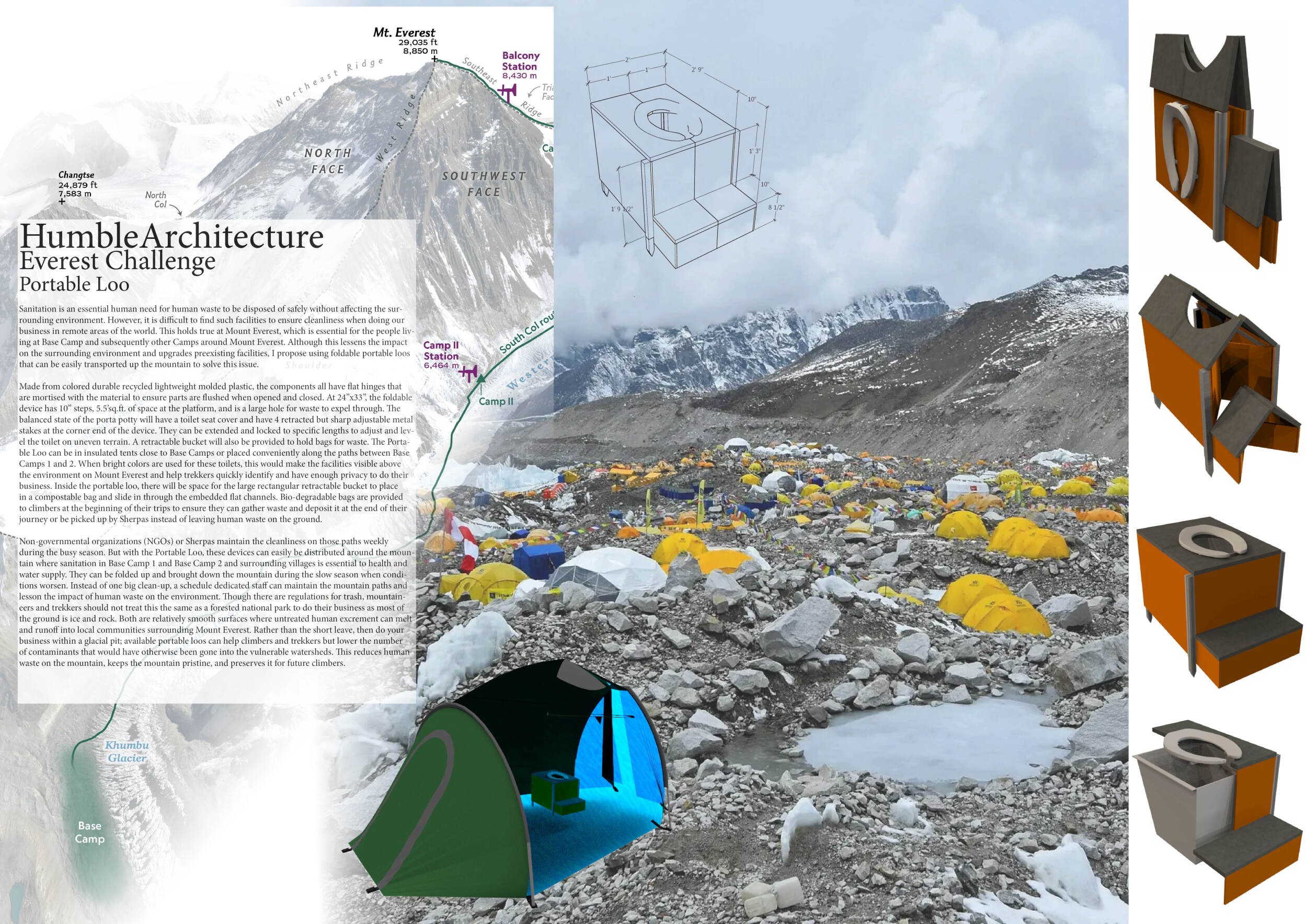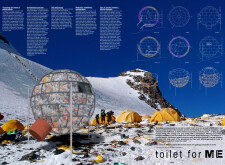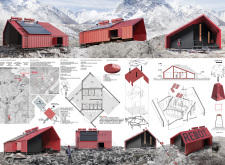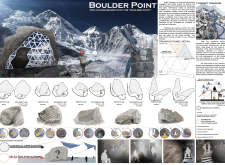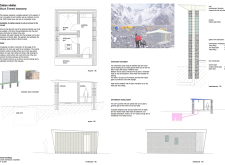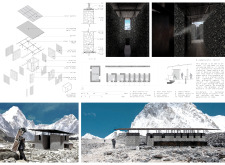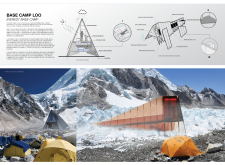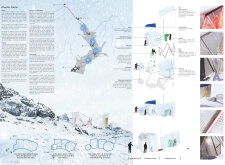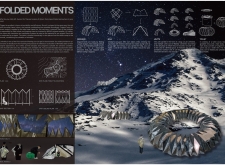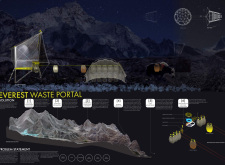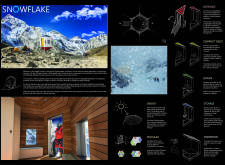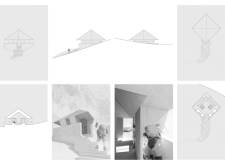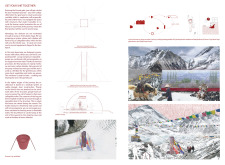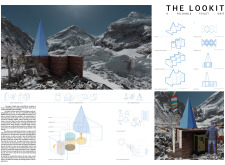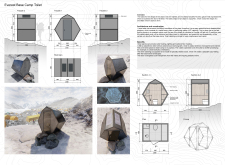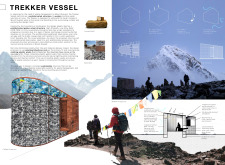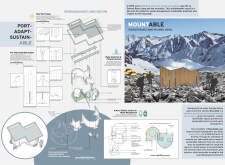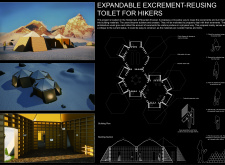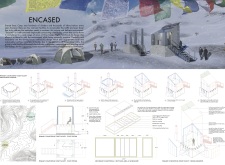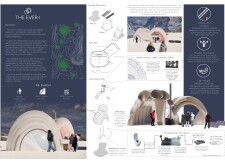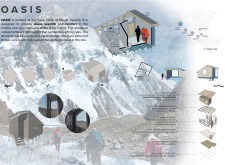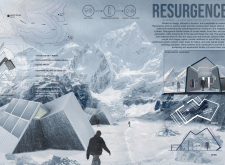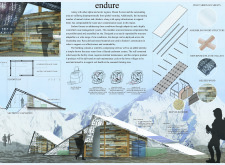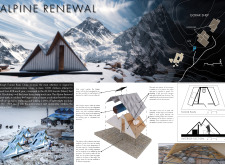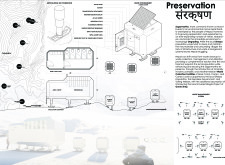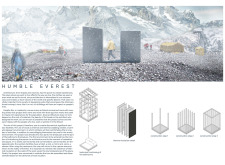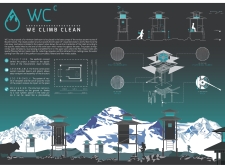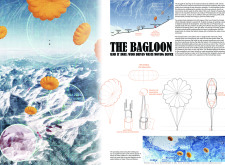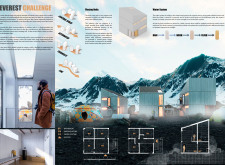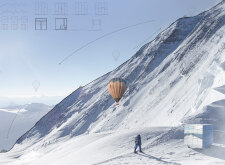Buildner is a global leader in organizing architecture competitions of all scales — from furniture, cottages, and guesthouses to full city rebranding. With prize budgets ranging from €5,000 to €500,000, Buildner brings proven global experience to every competition.
Launch a competitionLaunch a competition
Introduction
Bee Breeders Competition Organisers is excited to announce the results of its Humble Architecture: Everest Challenge!
The Humble Architecture competition series seeks designs for toilet facilities that could improve the lives of their users and consider the highest environmental standards for their sites. This first event tasked participants with designing sustainable toilet facilities on Mount Everest - a remote location with a harsh climate that sees many visitors, but is programmed with limited waste facilities.
Bee Breeders and its jury panel sought designs fitting for this unique site that are cost-effective, resistant to heat, cold, rain, snow, and wind, environmentally responsible and energy-efficient, low maintenance in terms of effort and costs, and considered the limited road access for construction or installation.
The jury panel for this event consisted of: Diego Baraona, founder of the Chilean architecture office DBAA - Diego Baraona Arquitectos y Asociados; Martin Beverfjord, co-founder of Oslo-based Rever & Drage, whose portfolio includes a triangular, aluminum toilet near the Farstadsanden beach on the west coast of Norway on one of the country's national scenic tourist routes; Greg Corso of Syracuse NY-based SPORTS Collaborative and Assistant Professor at Syracuse University, School of Architecture; Gonçalo Marrote, an architect and CEO at Madeiguincho, based in Cascais, Portugal and known for its merger of carpentry, architecture and art; Stephen Pimbley, the founding director of SPARK Architects, which has developed an easily transportable 3d printed toilet module in support of the UN initiative to combat open defecation and the associated issues of hygiene and sanitation in India; Angelo Renna, an architect that recently published the book Monkey Factor – Small stories for a reconciliation with nature; and Erik “Rick” Sommerfeld, an Architect, Assistant Professor and the Director of ColoradoBuildingWorkshop, the design-build program at the University of Colorado Denver, which annually designs and constructs a small-scale project such as that for a toilet in Rocky Mountain National Park.
We thank the participants for contributing their excellent design ideas, and congratulate the winning submissions for their thoughtfulness and innovation.
We sincerely thank our jury panel
for their time and expertise
Gonçalo Marrote
architect and CEO at Madeiguincho
Portugal

Greg Corso
Designer, SPORTS Collaborative
USA

Martin Beverfjord
Co-founder of Oslo-based Rever & Drage
Norway

Stephen Pimbley
British architect based in Singapore and is the founding director of SPARK Architects
Singapore

Erik Sommerfeld
Director of ColoradoBuildingWorkshop
USA

Diego Baraona
DBAA - Diego Baraona Arquitectos y Asociados
Chile

Angelo Renna
Architect
Italy

Rok Oman
OFIS Architects
Slovenia

1st Prize Winner +
BB GREEN AWARD +
BB STUDENT AWARD
BB GREEN AWARD +
BB STUDENT AWARD
THE PEAK
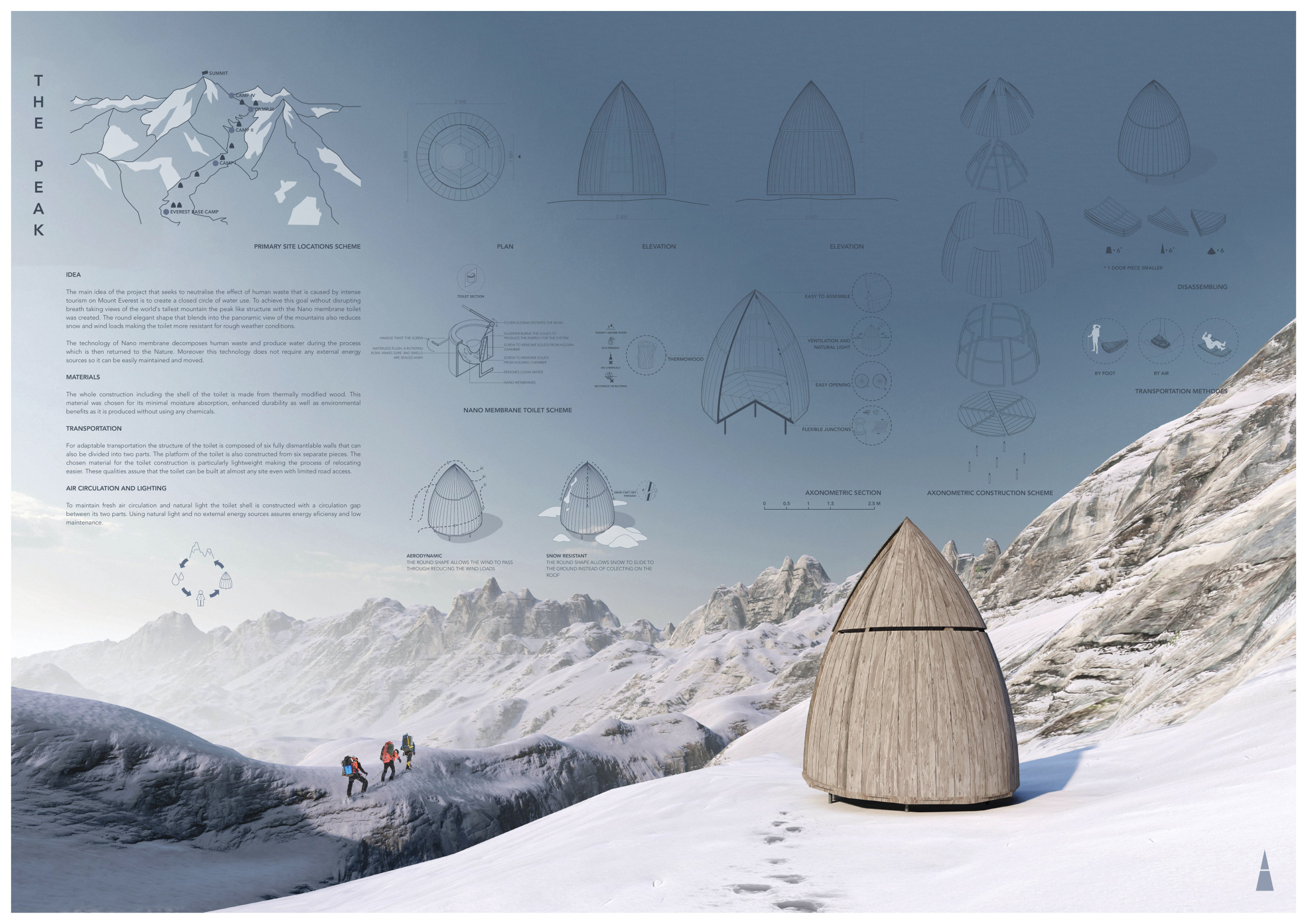
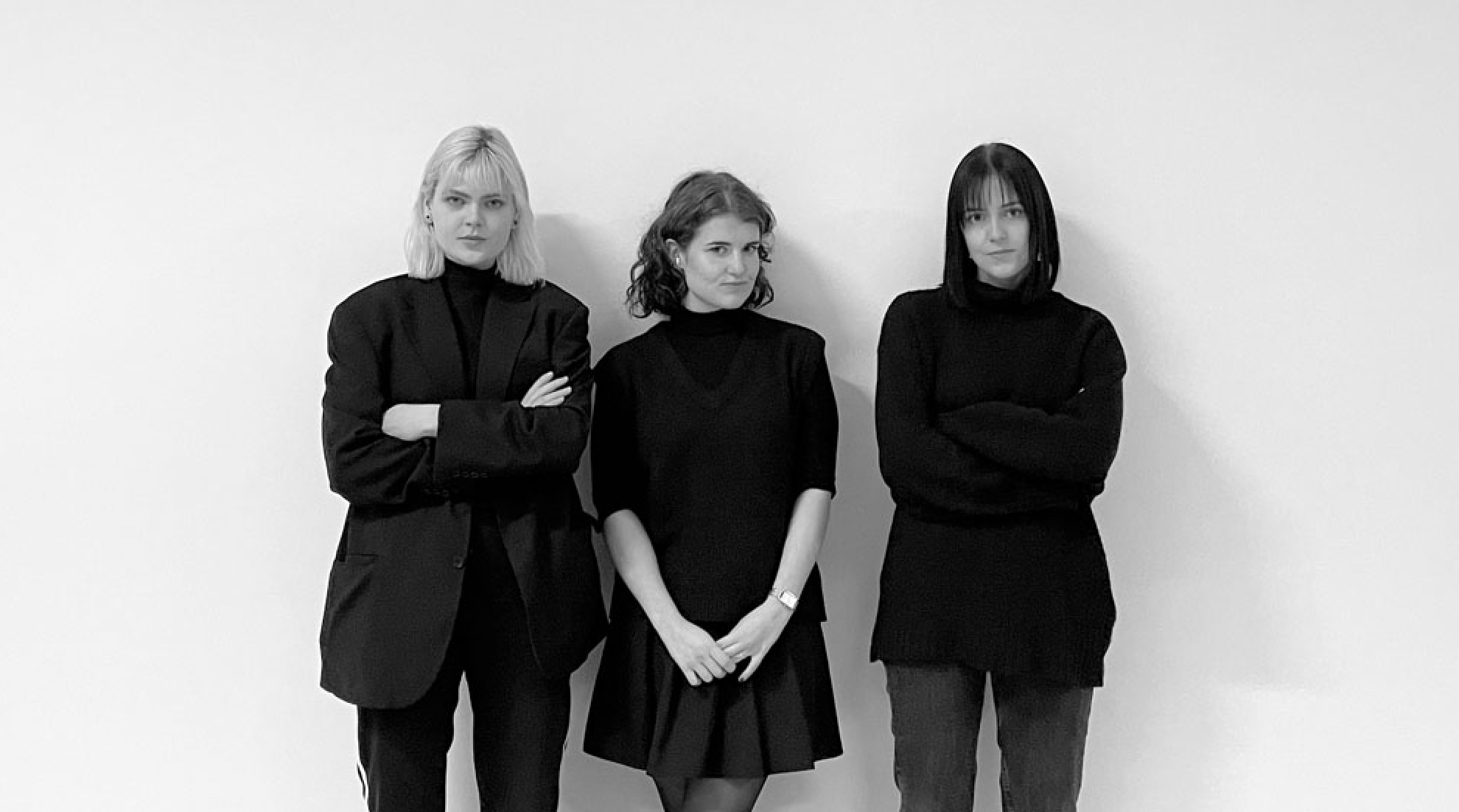
We believe that various architecture competitions are an opportunity to explore further a variety of diferent topics as well as to experience an adventure. It is a great chance to work in diǗerent settings with your team and learn new skills from each other.
Read full interviewJury feedback summary
The Peak seeks to create a closed cycle for water use. Its round elegant shape blends with the panoramic views from the mountains and resists snow loads. The technology of a Nano membrane decomposes human waste and produces water in this process, returning the water to nature without the need for an energy source. According to the jury, "A fascinating proposal with a solution to treat the human waste directly on-site using the nano-filtration system.
2nd Prize Winner
Cairns
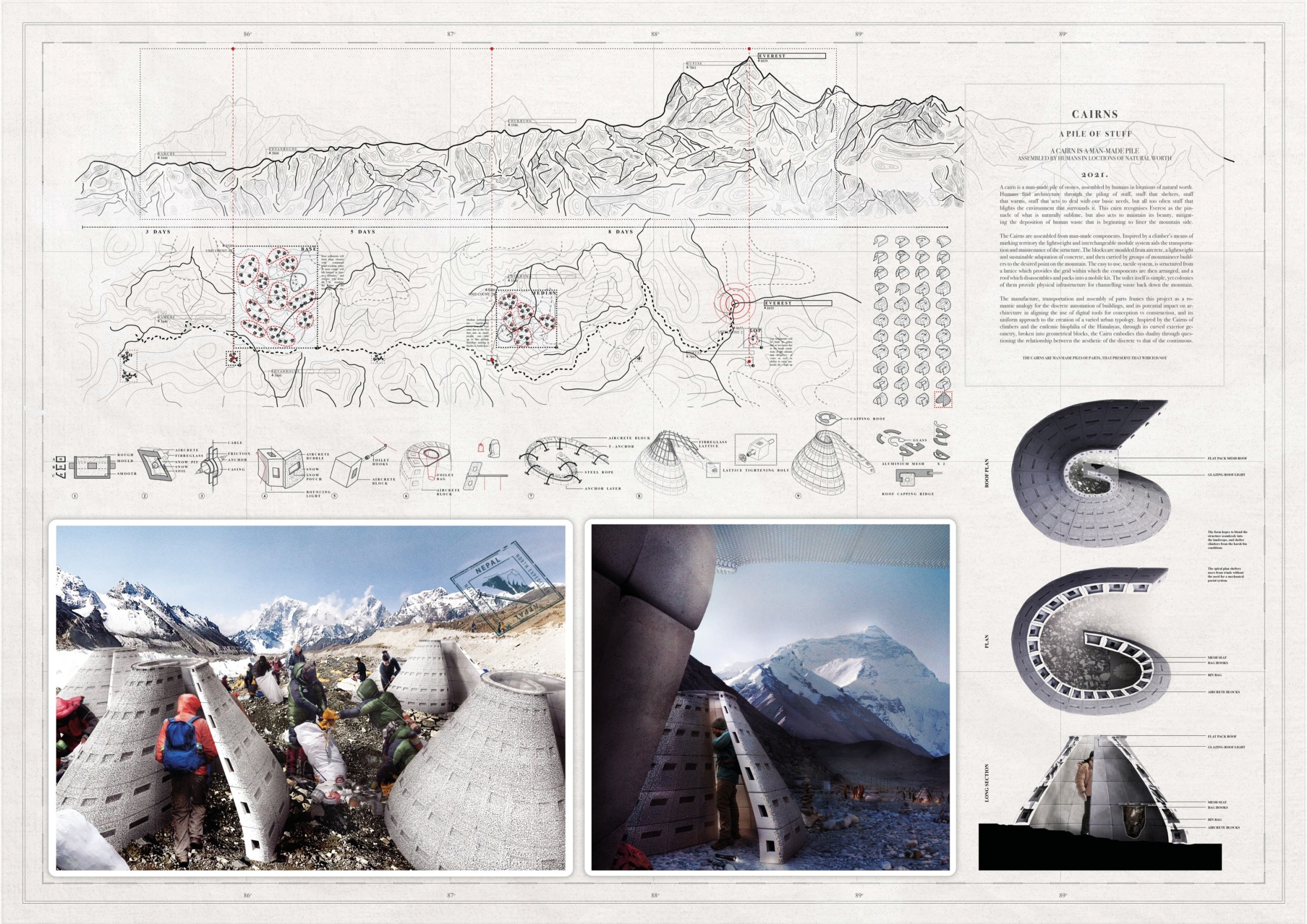
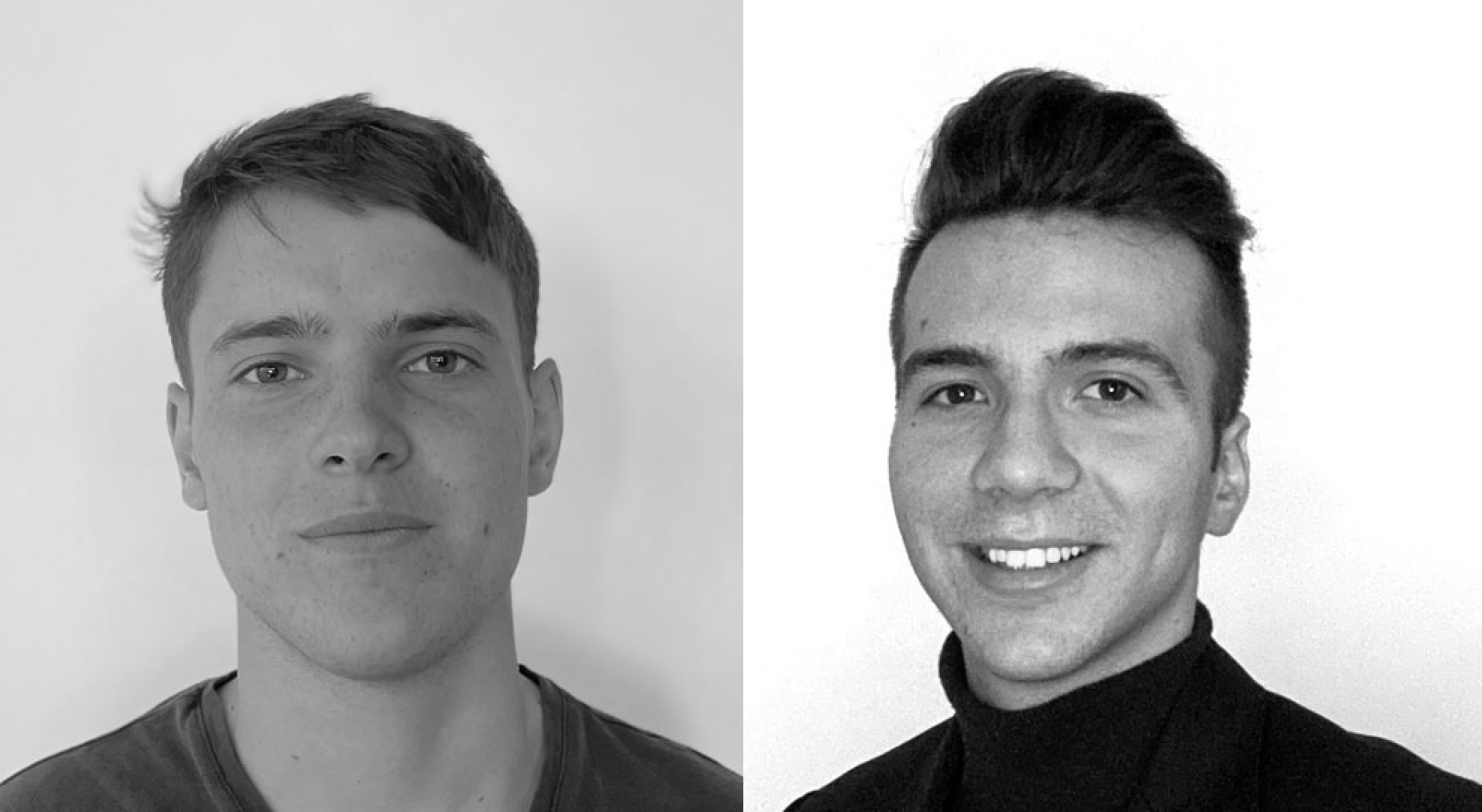
We participate in architectural competitions to feed our desire to explore idseas without the bounds of a commercial or corporate setting and use the process as a speculative steppingstone towards a one day built destination. But most of all because we enjoy designing
Read full interview United Kingdom
United Kingdom
Jury feedback summary
Cairns proposes a modular system made from aircrete - a lightweight and sustainable form of concrete. These molded building blocks can be carried by mountaineers to the desired location, reducing the need for any major means of transport for installation or construction. Once built, inside it includes a mesh seat and simple bag for waste disposal.
3rd Prize Winner
Crests
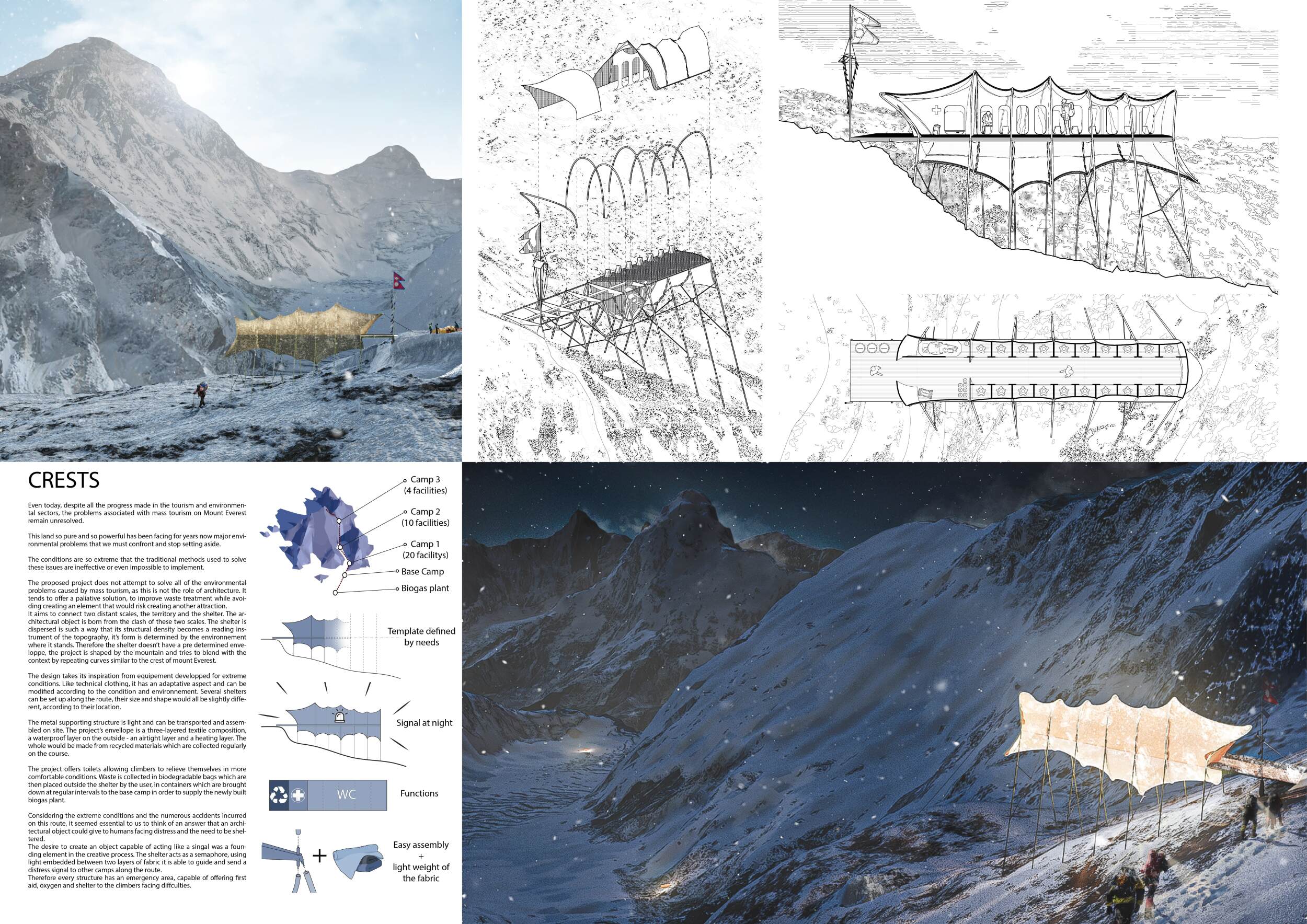
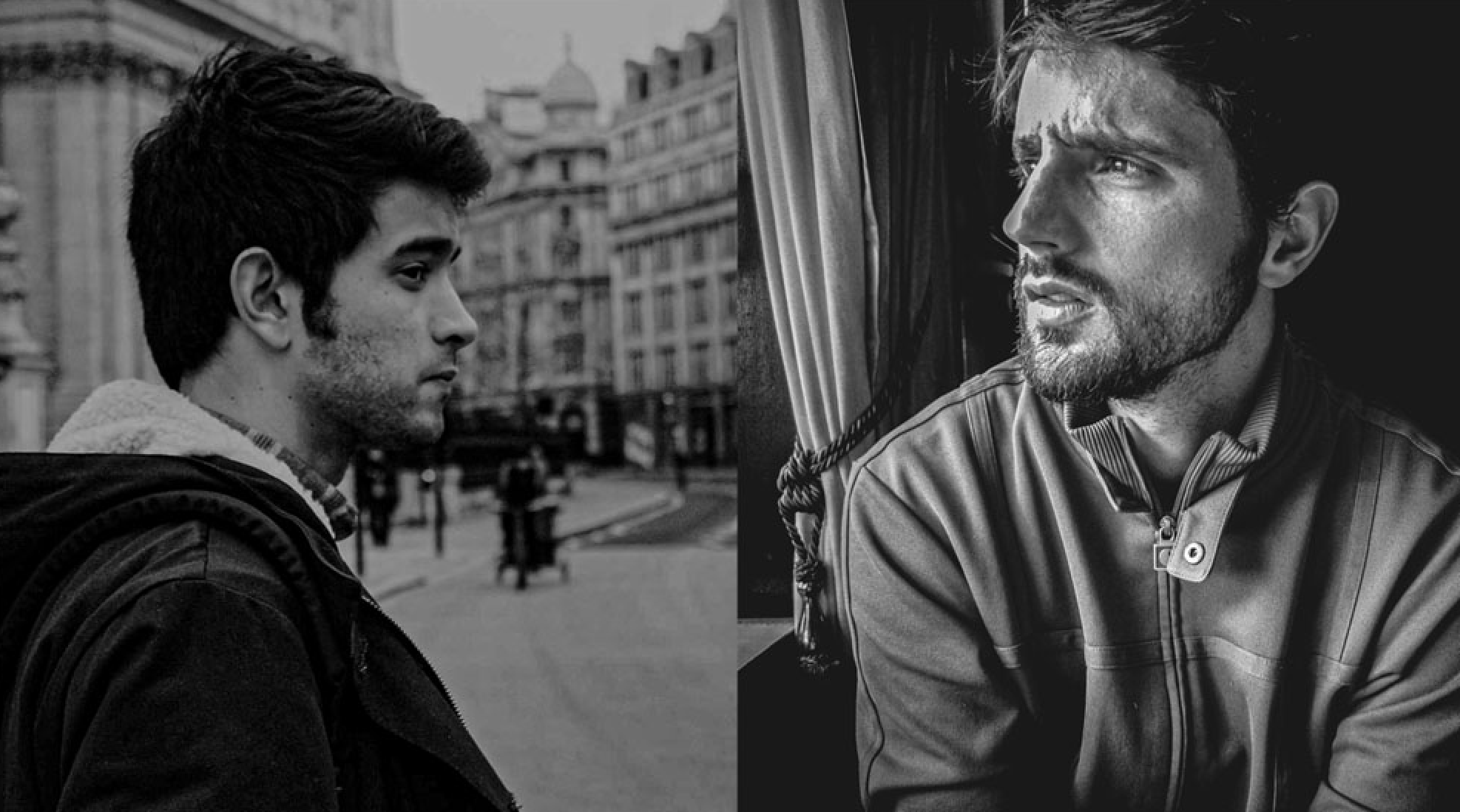
Competitions give the opportunity to experiment topics distant from our daily life and what we are used to work with. It helps to sharpen your design skills and diversify your knowledge. Through the different competition we took part in, we got to know more about different cities, places and cultures around the world. More importantly it gives the opportunity to propose solutions regarding the current needs of modern society without certain boundaries. This process of research by design is for us a great tool to understand the major problem/needs of our time.
Read full interview Belgium
Belgium
Jury feedback summary
The proposal Crest takes inspiration from tents and other shelters made for extreme conditions, with a metal base structure wrapped in lightweight fabric * in this case, dramatically cantilevered off the edge of the mountainous site’s steep topography. Waste is collected in biodegradable bags placed in bins removed from the mountain at intervals, where they are fed into a biogas plant also proposed as part of the solution.
Honorable mentions
Shortlisted projects
